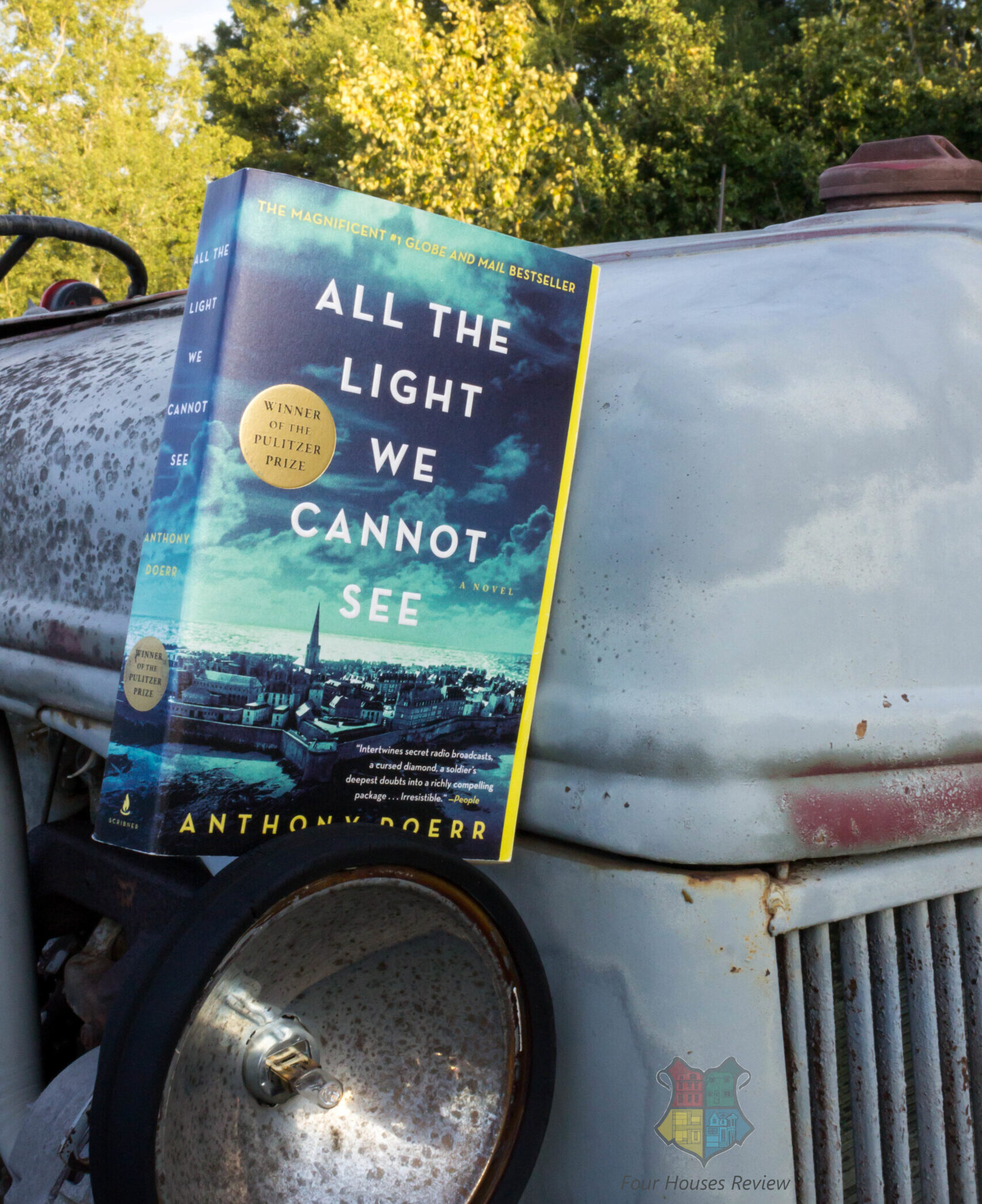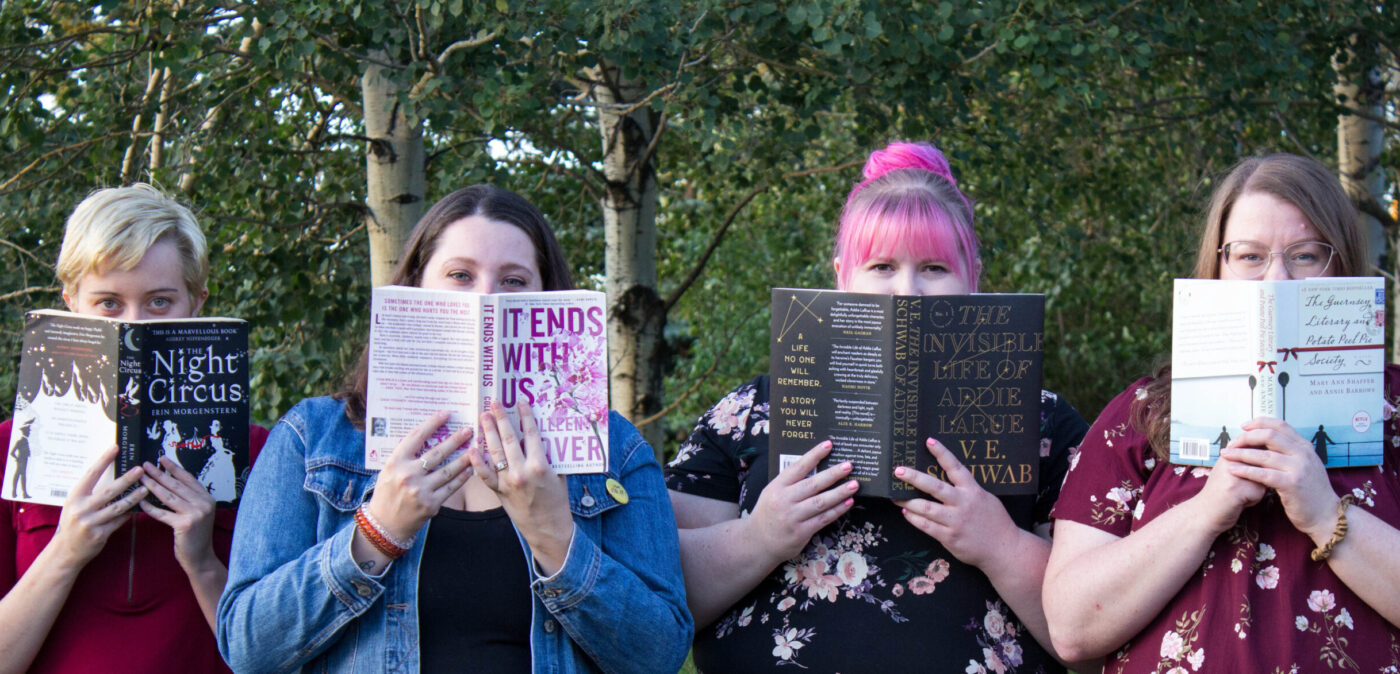
All the Light We Cannot See
Author: Anthony Doerr
Average Rating: 2.5 / 5
Trigger Warnings:
Violence
Physical Abuse
Rape Scene
When Marie-Laure went blind as a child, she would have been cut off from the world if not for her father’s love and ingenuitive support. Daniel Leblanc works at the Museum of Natural History in Paris as a gifted locksmith and keeper of the keys. Using his skills of miniaturization, he lovingly builds scale models of the world around Marie-Laure so that she can find her way around the city. He further unlocks the outside world by encouraging her to learn braille, sacrificing much to provide her with the expensive books.
Then the Nazis invade and begin their occupation, forcing father and daughter to flee Paris. They travel to the seaside citadel of Saint-Malo where a reclusive and eccentric uncle resides. Under complete secrecy, they are also smuggling a valuable and perhaps even dangerous treasure from the Museum, intent on keeping it safe from the invading forces.
Werner Pfennig’s world is also very limited, not from lack of sight but from lack of options. In a small mining town in Germany, he and his younger sister have only an old broken down radio to connect them with the world. Craving stories and news from exotic far off places, Werner becomes an expert at taking apart and repairing the finicky machines. It doesn’t take long for his talents to be noticed, and he is soon enlisted to help track down the illicit radio signals of the resistance.
Skillfully weaving these two opposing lives together, Doerr brings light to human nature and our ability to connect and draw together under difficult circumstances.
Lydia: 3/5
This book had been on my TBR (to be read) shelf for a long time. I will be honest and say that it took me a while to get into this book. The plot was slowly developed and in this day and age where World War II historical fiction books are so popular, this book needed something special to stand out. While I don’t necessarily think it was bad, it was definitely missing that special ‘wow’ factor. It was very much like every other World War II book that I have read. One thing that stands out is that I thoroughly enjoyed reading the characters’ development and how they affected each other. Doerr has a way with words and because of that I was able to finish this book.
Megan: 1/5
This book was a struggle. I wouldn’t say that I had high hopes for it, but thought that it at least would be enjoyable since I like reading WWII historical fiction. This was much worse than what I was expecting.
To start, the tone of the writing didn’t match the tone of the story. There was too much imagery, too much fluff, which detracted from the story. I understand the need for more description for Marie-Laure, as those images described the world as she was experiencing it, but it seemed irrelevant for Werner’s story. The short chapters and the jumping back and forth were supposed to create suspense, but I found it annoying. Since the book was a slog to get through, all the jumping around made it more difficult to keep the story straight.
The book does explain a little bit about the horrors of WWII, and it was interesting to have a Nazi youth perspective. But even with that, there was no character development to either main character. Jutta encouraged her brother, Werner, to question what he was learning at the National Political Institute of Education and the ethics behind it, but it wasn’t until his path crossed with Marie-Laure that he actually began to listen to his sister’s advice from long ago.
The last thing that had no bearing to the story whatsoever was the diamond. It felt like it was thrown in to try and add a mystical element to the story, but completely missed the mark. It was filler in hopes of trying to redeem an already dull story. There are so many well written WWII historical fiction works out there that I would not waste your time on this one.
Sharaya: 3.5/5
Okay, real talk. I read this book a while ago, before we even thought of creating this blog. When I went to check Goodreads for my rating, I found that I had given it 4 stars. However, the most concrete things I remember now are that the main character was blind, it was set in France, and Megan loathed this book… so, was it really worthy of four stars? I decided to drop my rating to a 3.5 because of how the book has aged in my recollection.
I did enjoy the literary aspect with Marie-Laure’s character. It was very neat reading a novel with a blind main character and getting to witness how she connected with the world around her, and the huge impact that learning braille and reading had on her. It made me want to pick up the same stories and read them myself. And I am always a fan of the quirky or eccentric old man who connects with a young person, so I did really enjoy her relationship with her uncle. It was also interesting to read about Werner’s experience with Hitler Youth, as I had heard of it but didn’t know much about it. The plot-line about the treasure seemed very so-so to me, and perhaps not fitting with the rest of the book. If WWII books are your thing, then I would give this a read, but I wouldn’t say it’s a must-read for the genre.
To access a printable list of 10 book club questions, please click here.






-
-
3 years
Tagged Art,art dealer,falling for your ex,Historical,historical artifact